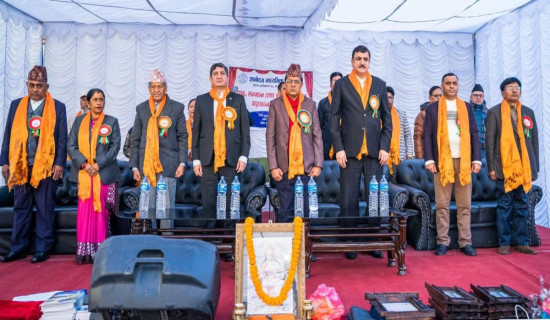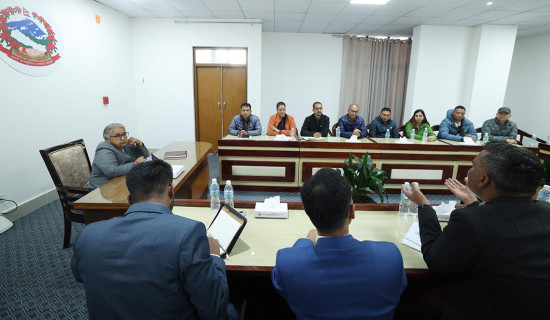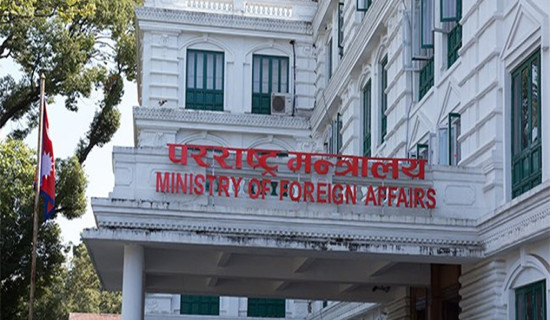- Monday, 1 December 2025
Bee farmers send memorandum to PM to reconsider decision
Narayangadh (Chitwan), Nov 4: Beekeepers in Chitwan have submitted a memorandum to the Prime Minister through Chief District Officer Ganesh Aryal, urging the government to reconsider the decision that gave priority to imported honey.
A decision was made on October 13 in the presence of Minister of Agriculture and Livestock Development Dr Madan Prasad Pariyar and in coordination with the Federation of Nepal Beekeepers, to purchase 10 metric tons of 'mustard honey' from local bee farmers and to grant import permission for 125 metric tons of honey for Dabur Nepal and 40 metric tons for Patanjali Ayurveda as part of the second quarterly quota.
The decision has been opposed by bee farmers, stating that it will negatively affect the beekeeping business across the country and that only a few members participated in the decision-making process.
Shiva Poudel, the outgoing president of the Federation, stated that since the main period for honey production and consumption is from Ashoj to Chaitra, allowing the import of foreign honey during this period is not in the interest of Nepali bee farmers.
He urged the government to facilitate the production and marketing of domestic honey through policy intervention while implementing import substitution programmes.
According to him, without government support, there is a risk that foreign multinational companies and large business intermediaries could displace Nepali honey farmers.
Approximately 1,500 metric tons of mustard honey, 2,000 metric tons of 'Chiuri (or Nepali butter tree, Diploknema butyracea)' honey, and another 500 metric tons of other types of honey is produced annually in Nepal.
Commercial beekeeping started in Nepal since 1994, and currently there are about 130,000 hives of the mellifera breed bees and more than 170,000 hives of 'Serena (apis cerana) breed.
It is estimated that about four thousand metric tons of honey is produced annually from mellifera beekeeping and about one thousand metric tons from Serena beekeeping. In Nepal, about 12 thousand farmers are engaged in mellifera beekeeping and thousands of farmers are professionally involved in 'serena' beekeeping. (RSS)
















